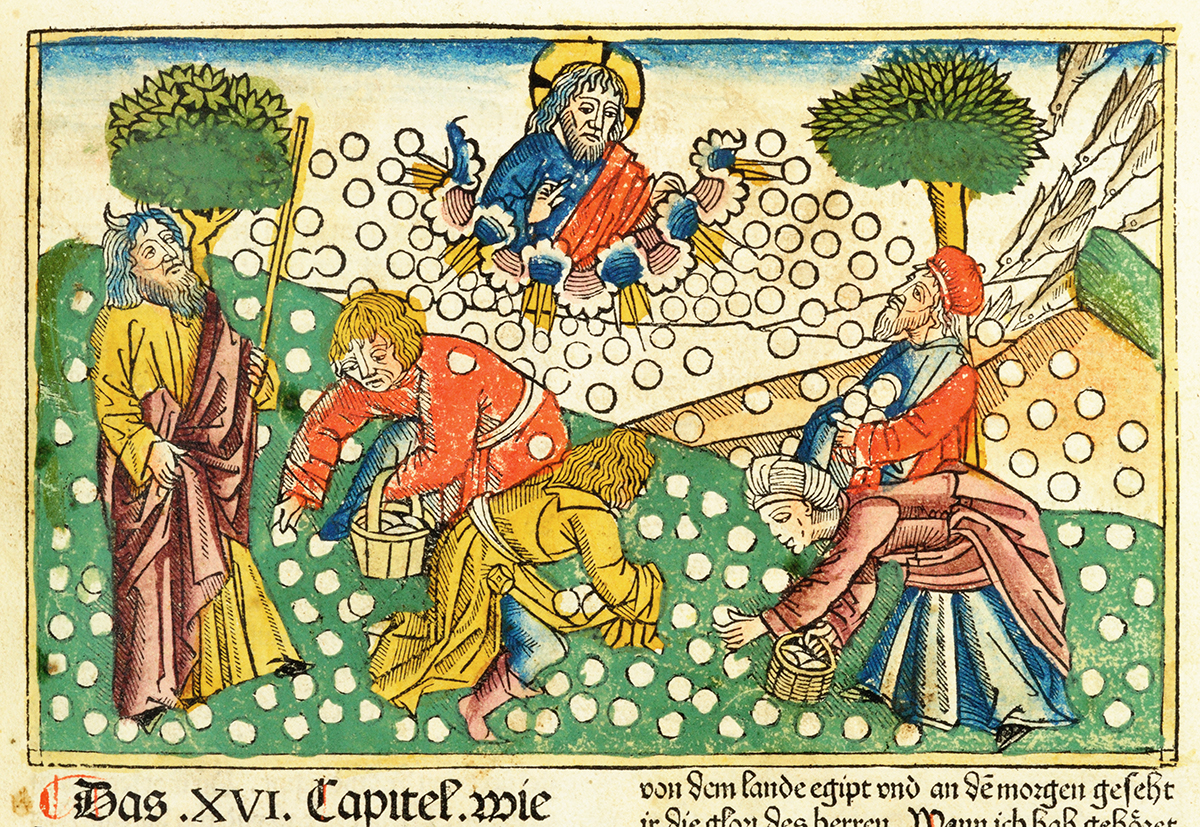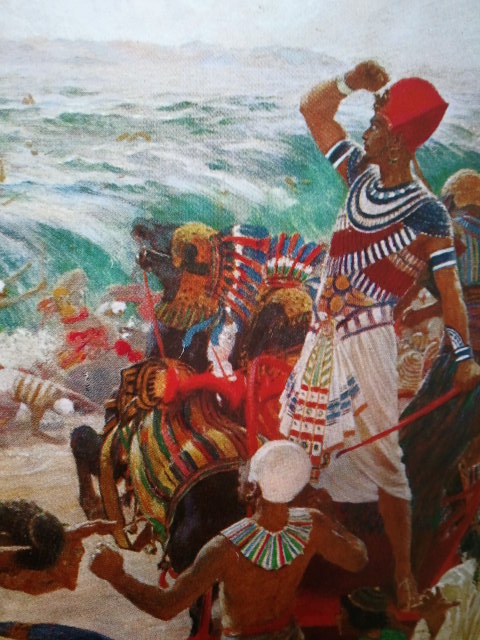I’ve been doing a lot of thinking about the wilderness this week: Christ in the wilderness for forty days. Moses in the wilderness for forty years. Moses interceding for the people so that God would not destroy them (pointing out to God that destroying his own people would look bad).
“So I lay prostrate before the Lord for these forty days and forty nights, because the Lord had said he would destroy you. And I prayed to the Lord, ‘O Lord God, destroy not thy people and thy heritage, whom thou hast redeemed through thy greatness, whom thou hast brought out of Egypt with a mighty hand. Remember thy servants, Abraham, Isaac, and Jacob; do not regard the stubbornness of this people, or their wickedness, or their sin, lest the land from which thou didst bring us say, “Because the Lord was not able to bring them into the land which he promised them, and because he hated them, he has brought them out to slay them in the wilderness.” For they are thy people and thy heritage, whom thou didst bring out by thy great power and by thy outstretched arm.’ Deurteronomy 9:23-29
I’d been pondering for a few days, and then my sister sent me an article by Kevin P. Emmert called “A Lent that’s Not for Your Spiritual Improvement.” Emmert urges us to look to the example of Christ in the wilderness and use our Lenten disciplines as a means to better serve our neighbors. He argues that we shouldn’t see Lent as merely an occasion for personal holiness or drawing nearer to God.
While I might disagree a bit with Emmert’s use of the term “personal holiness” (I don’t think true holiness can ever be selfish), I do take his point about the social dimensions of Lent. He quotes from Isaiah:
Is not this the kind of fasting I have chosen:
to loose the chains of injustice
and untie the cords of the yoke,
to set the oppressed free
and break every yoke?
Is it not to share your food with the hungry
and to provide the poor wanderer with shelter—
when you see the naked, to clothe them,
and not to turn away from your own flesh and blood? Isaiah 58:6–7
Now, I have never been a faster, but I am a pray-er, and it occurred to me that I rarely pray for God to forgive others’ sins. I ask on my own behalf all the time (“Lord Jesus Christ, Son of God, have mercy on me a sinner.”), but how often do I intercede for others in this way? Truth to tell, it feels a little cheeky, if you know what I mean. Judgmental. It feels like taking on something that’s not my job.
In Hebrews we read about the office of the high priest
For every high priest chosen from among men is appointed to act on behalf of men in relation to God, to offer gifts and sacrifices for sins. He can deal gently with the ignorant and wayward, since he himself is beset with weakness. Because of this he is bound to offer sacrifice for his own sins as well as for those of the people. And one does not take the honor upon himself, but he is called by God, just as Aaron was.
And we know that Jesus prayed for us, “Father, forgive them…”
I am not called to the priesthood. I am certainly not Jesus, but I wonder if, as we are all called to imitate Christ, we might not include in our intercessory prayers a request for forgiveness. Not just comfort and healing, not just the “let-this-cup-pass” kind of mercy, and not just “Spare thou those who are penitent.” More like “Spare thou those who are making the world a miserable place and who care nothing about you. Spare the ignorant and wayward and hateful. Forgive them.”
The one thing I know know I have in common with the high priest is that I am beset with weakness. (Perhaps that knowledge will grant me the possibility of dealing gently with the clergy, as with all fellow Christians.) But here in this Lenten wilderness I am wondering about Moses and Jesus and praying for others.
Forgive us our trespasses as we forgive those who trespass against us…and please, God, will you forgive them too?



